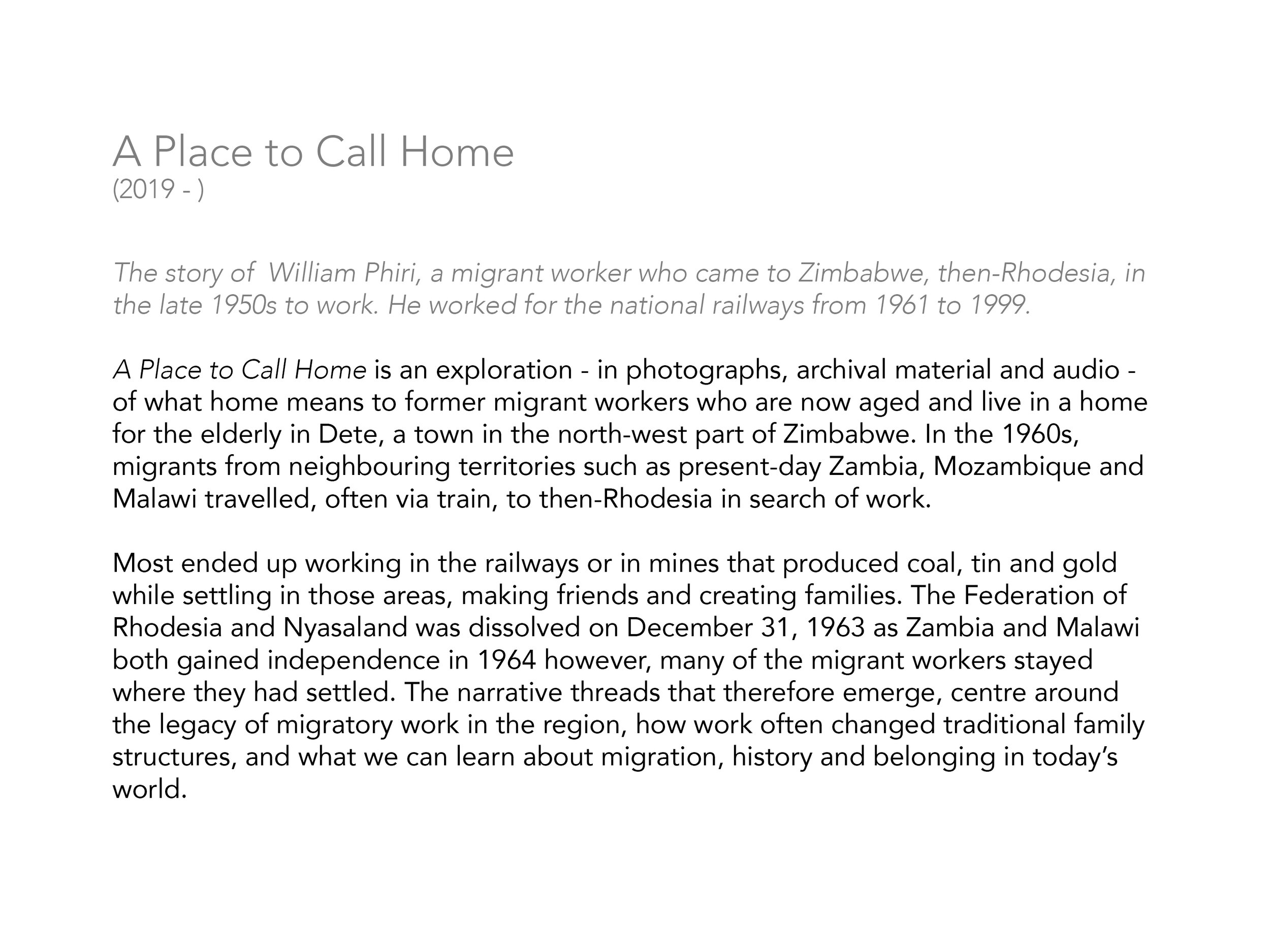
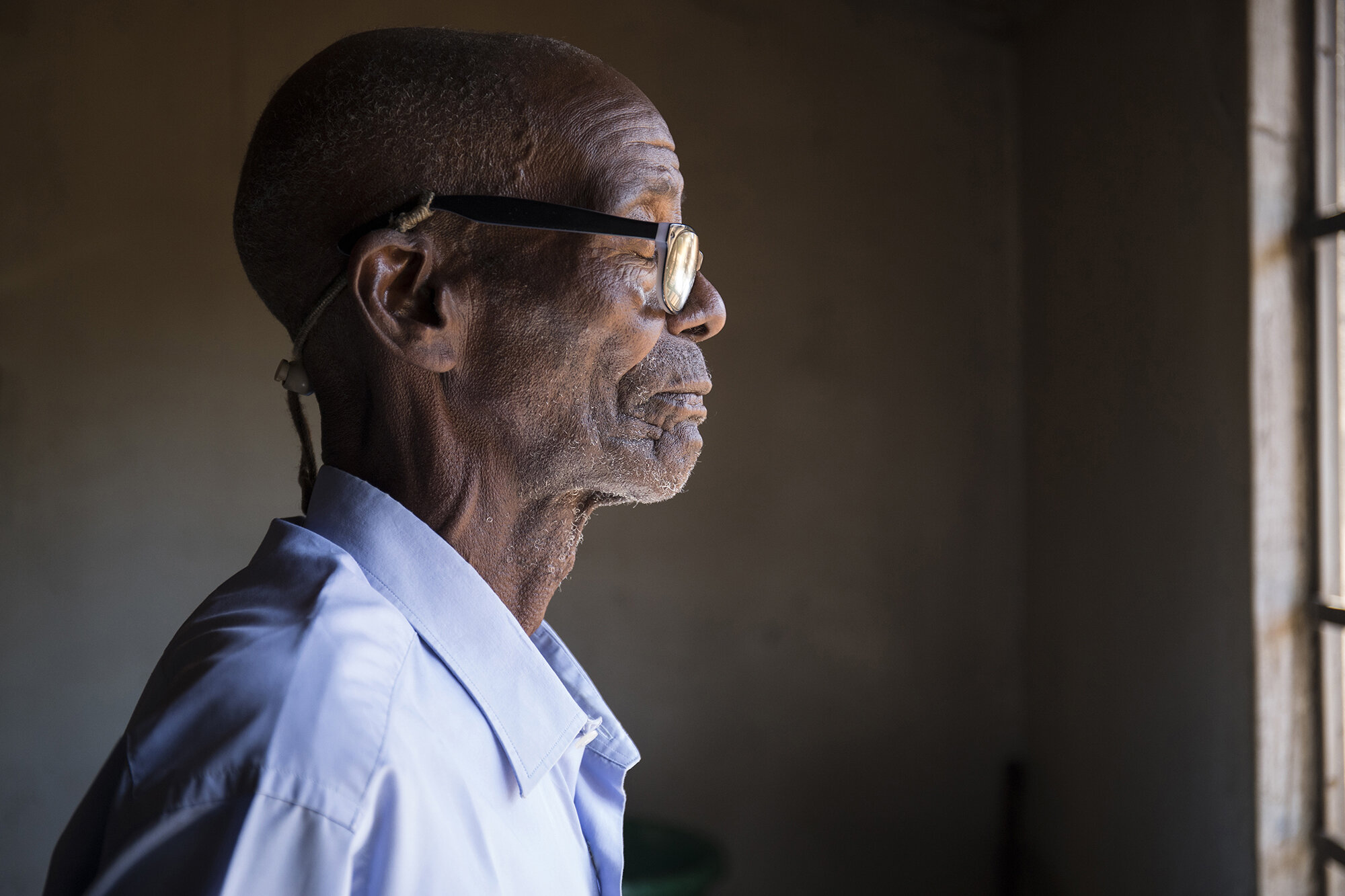
“When I sit alone, when I am here, I remember all the things that my brother used to do even when my mother and father were still alive - he was a 100%, just a good person.”
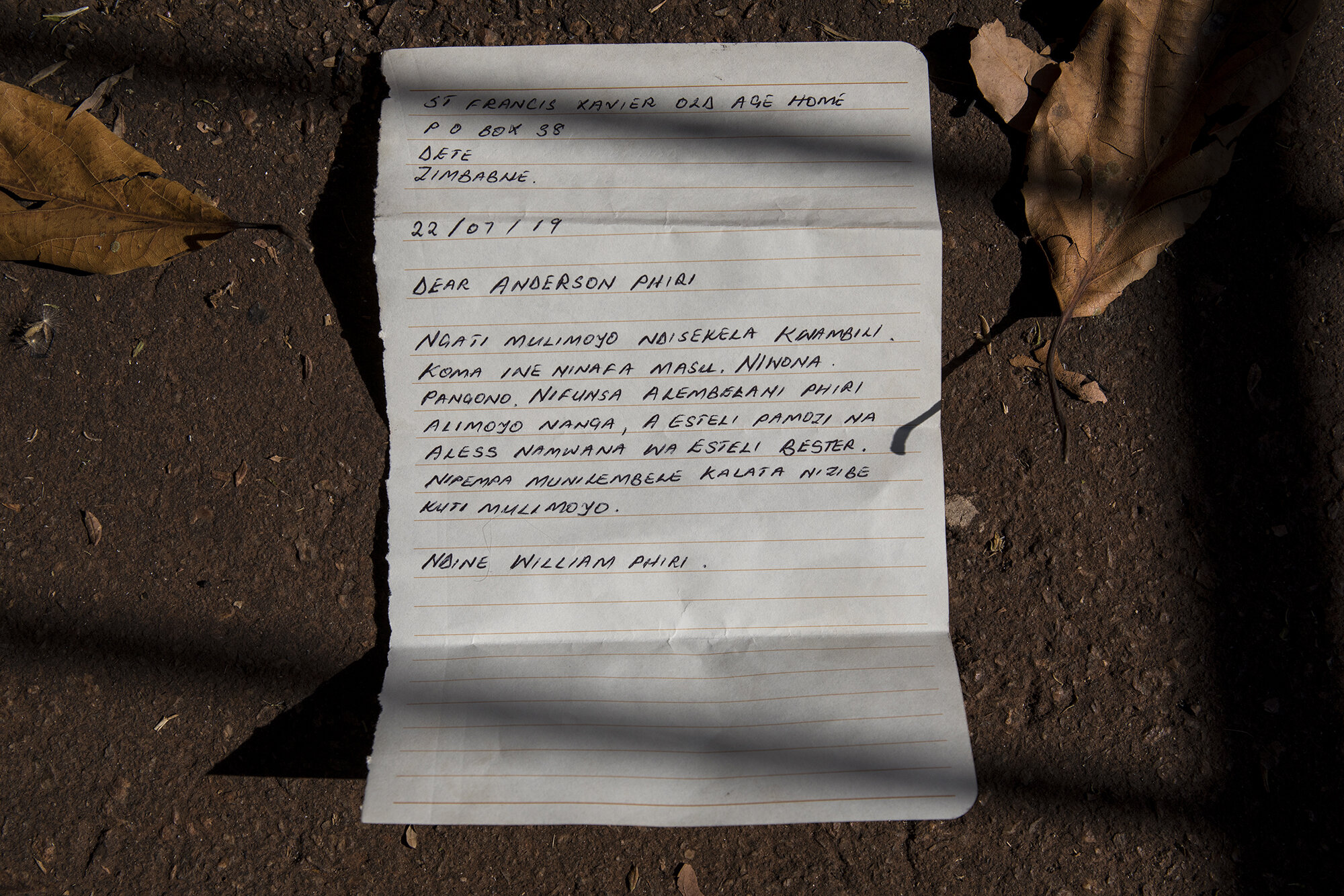
Dear Anderson Phiri
If you are alive I am very happy. As for me I have gone blind, I can barely see. Am also asking if Lembelani Phiri is still alive, Esteli and Aless and the daughter to Esteli, Bester. I am asking if you can write to me and tell me if you and everyone are alive.
Yours William Phiri
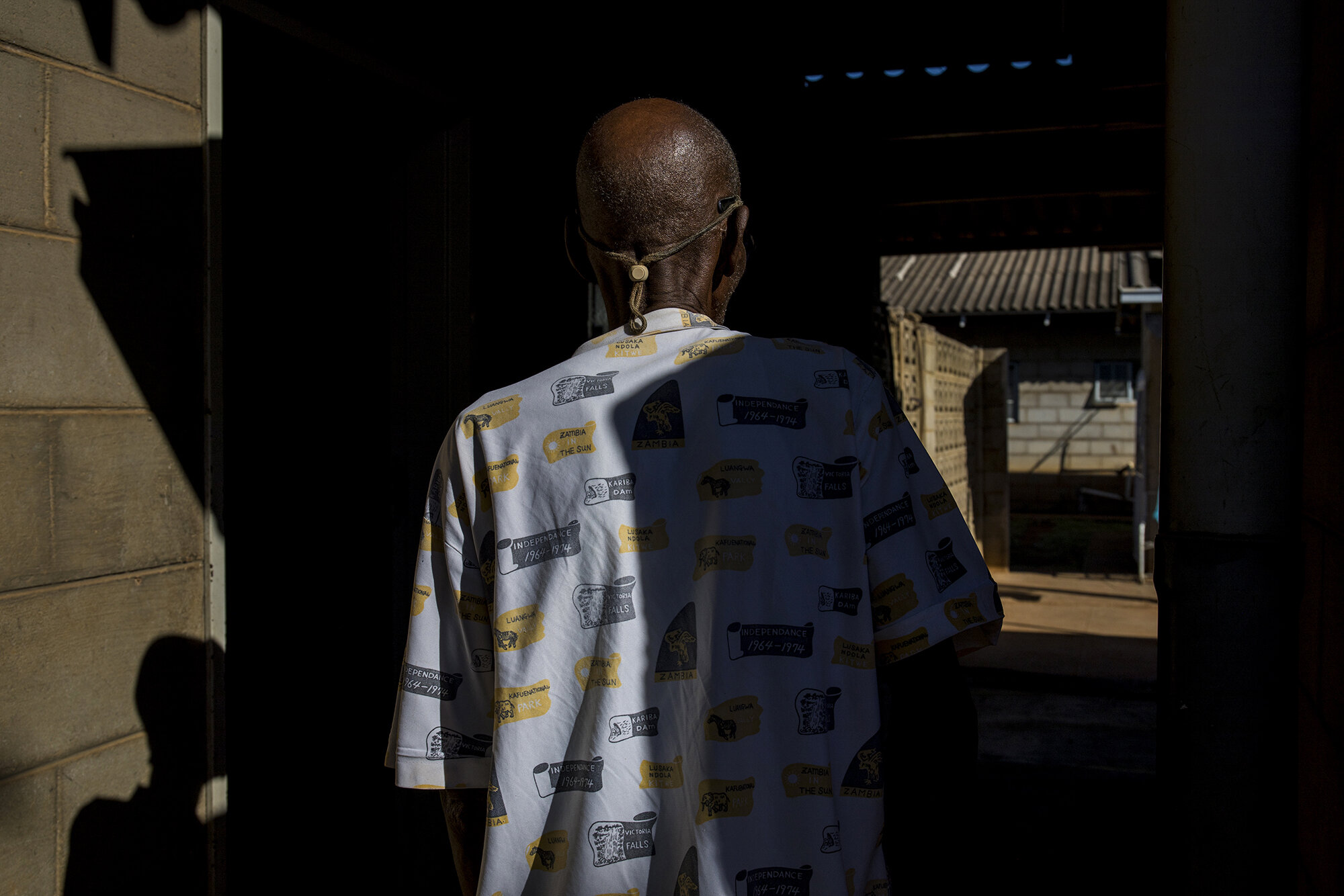
William Phiri wears a shirt inscribed with landmarks in Zambia at the country’s independence in 1964. He got the shirt on his last trip to Zambia and has kept it over the years as a reminder of where he comes from. “I used to wear the shirt as an undershirt before Zimbabwe gained it’s independence in 1980. You could get arrested if you were seen wearing anything that was pro-independence.”
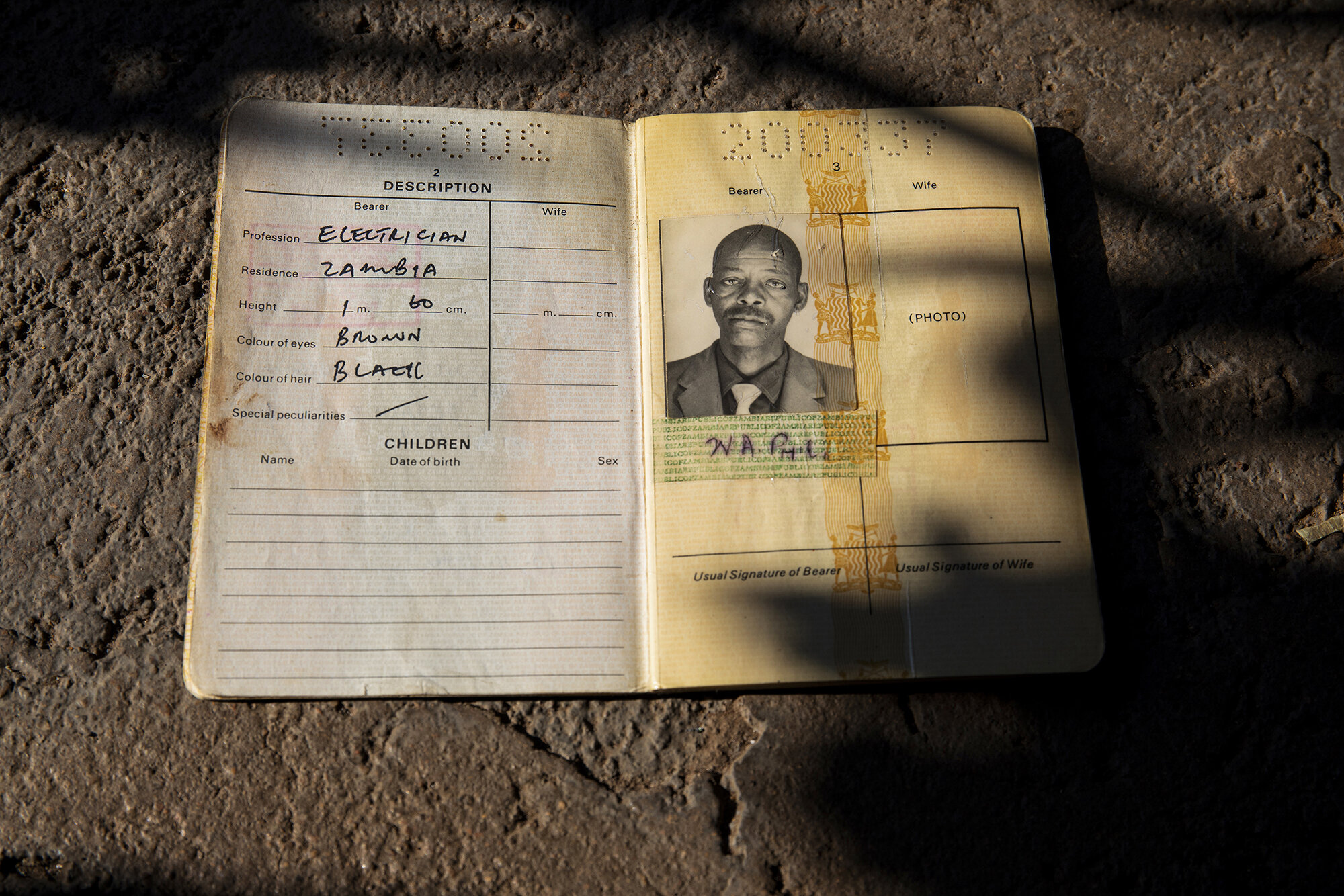
William Phiri (86), is a former migrant worker who came from then-Northern Rhodesia (now Zambia) in the late 1950s to work in then-Southern Rhodesia. He joined the National Railways of Rhodesia (now National Railways of Zimbabwe) and worked there from 1970 until he retired in 1999.
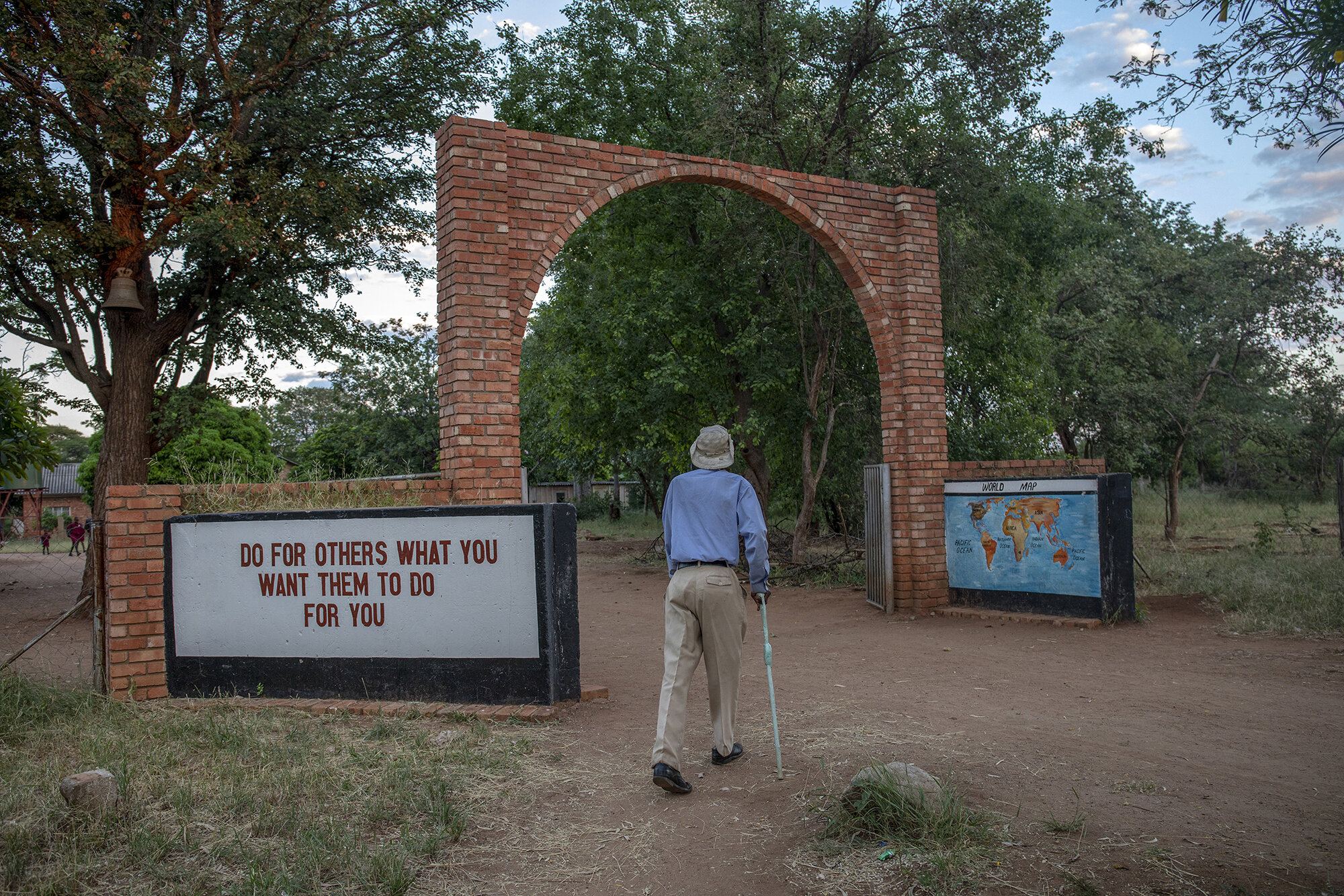
Every morning William Phiri walks to a nearby catholic church in his community in Dete, Zimbabwe to attend mass. He believes God protects us all in our daily lives.
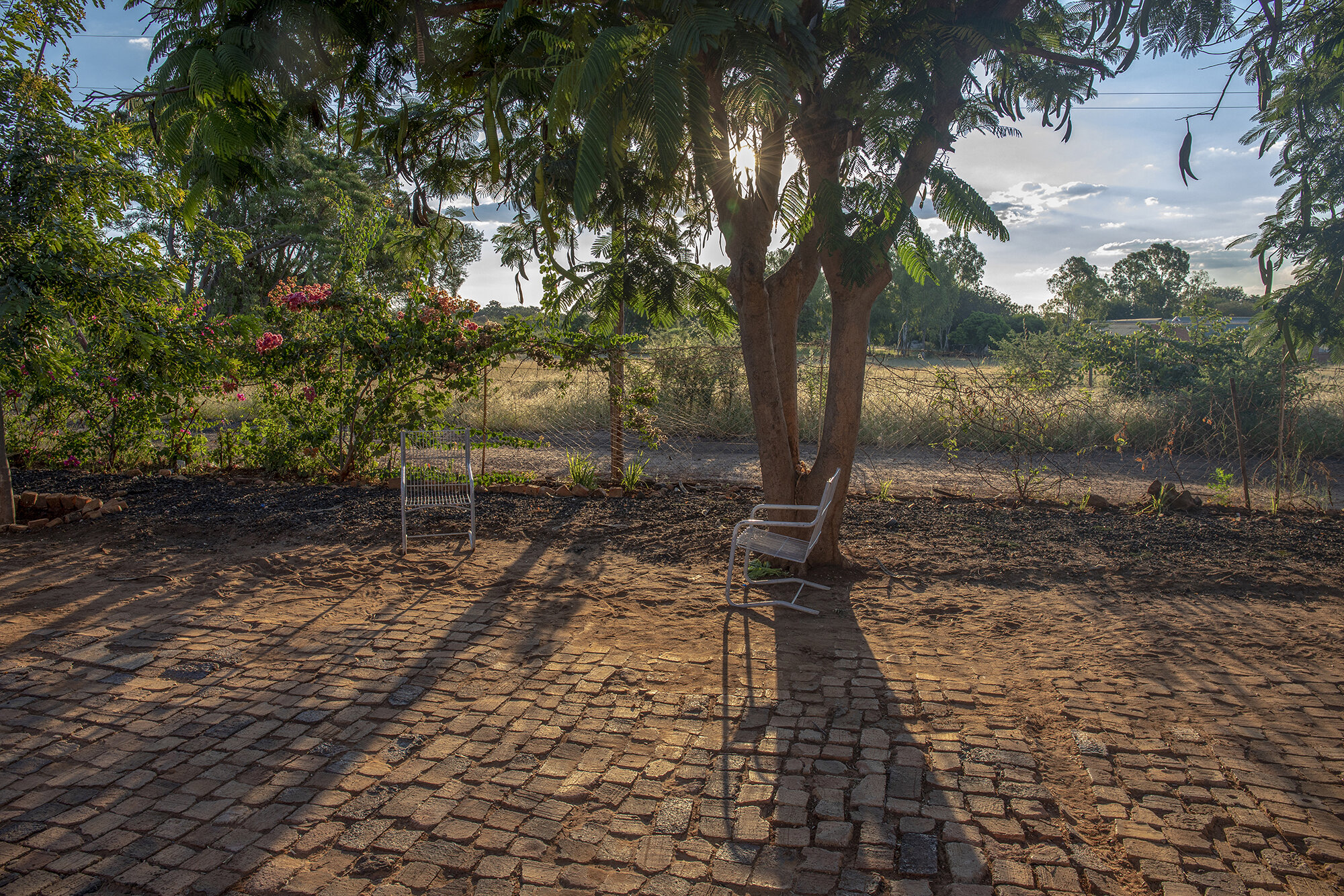
The sunsets at Dete Old Age Home, in Dete where William Phiri spends the last of his days.
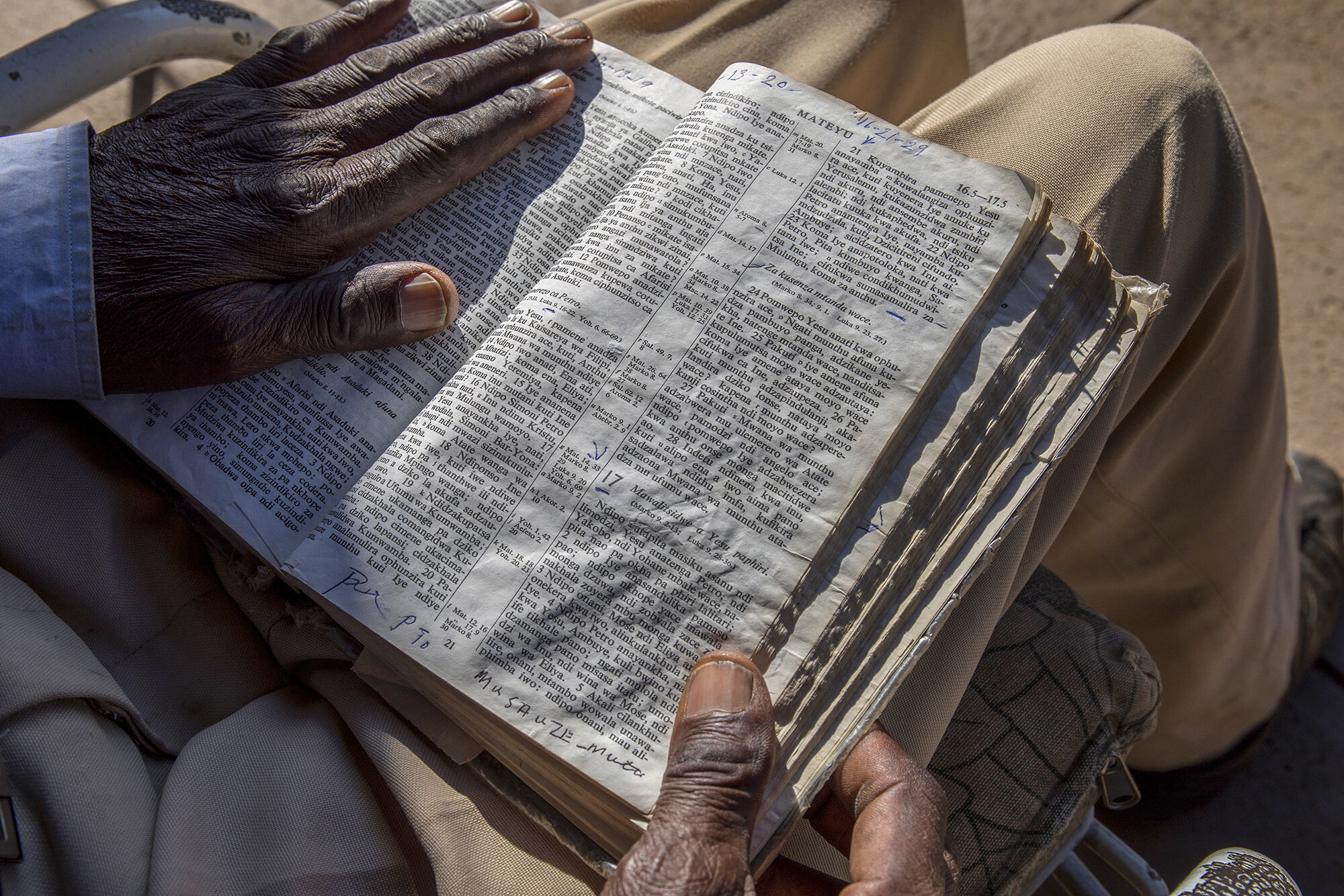
Wlliam Phiri opens his favourite Bible verse Matthew 17.
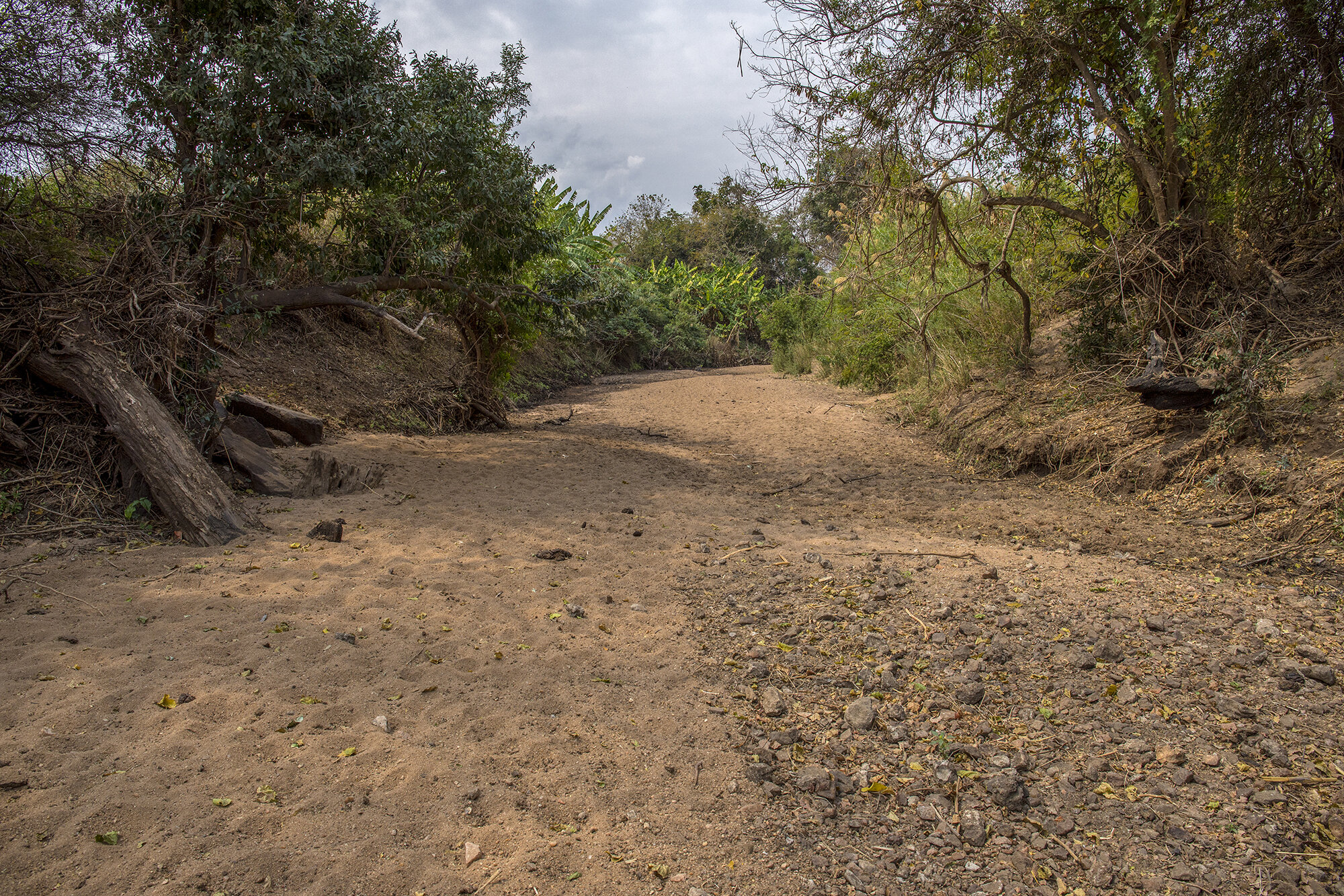
Kapoche stream near Chinyama village in Zambia. Growing up in the 30s and 40s, William Phiri remembers catching fish from the stream with his younger brother Anderson. Now the stream has dried up.
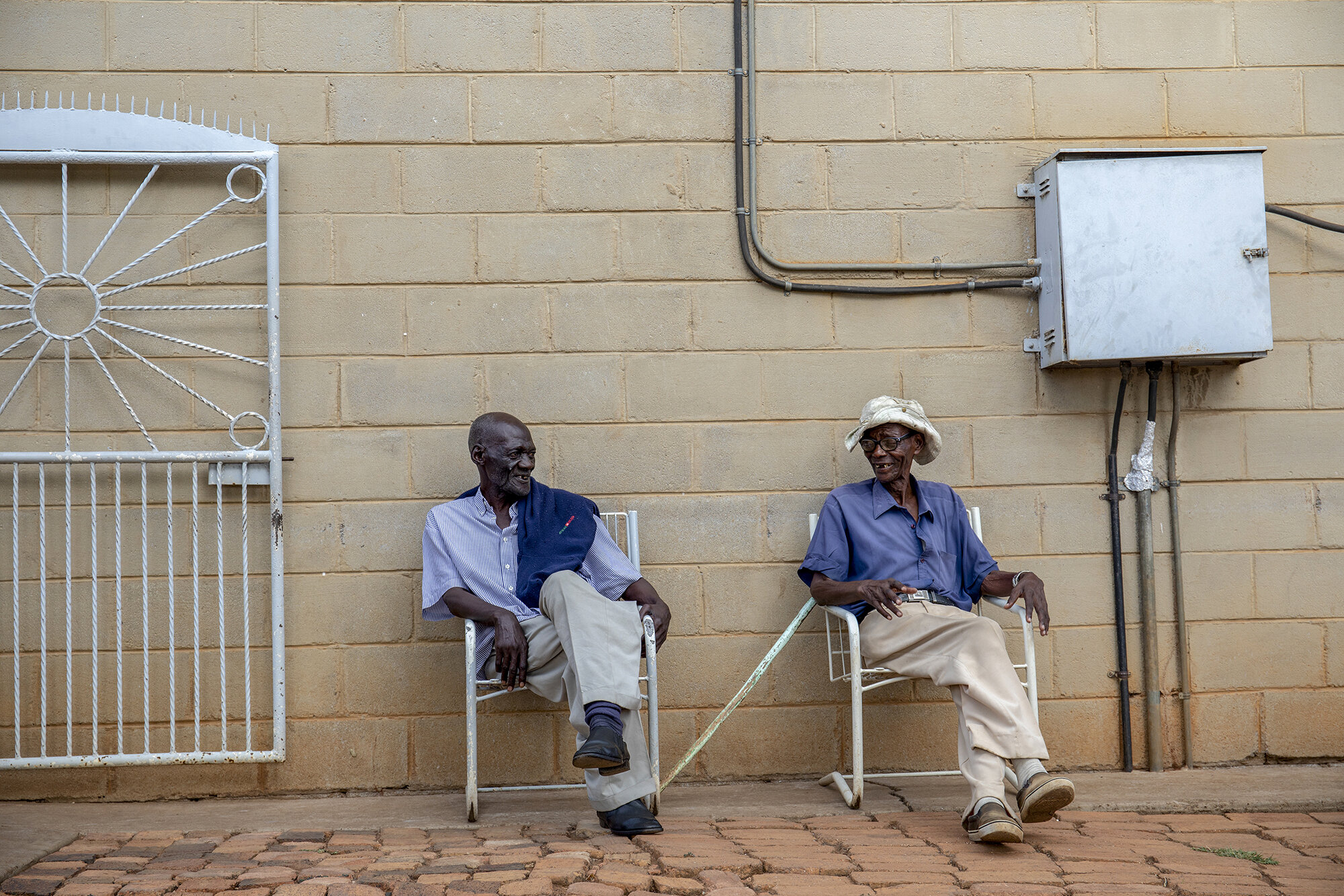
William Phiri shares a laugh with his companion at Dete Old Age Home, Dete.
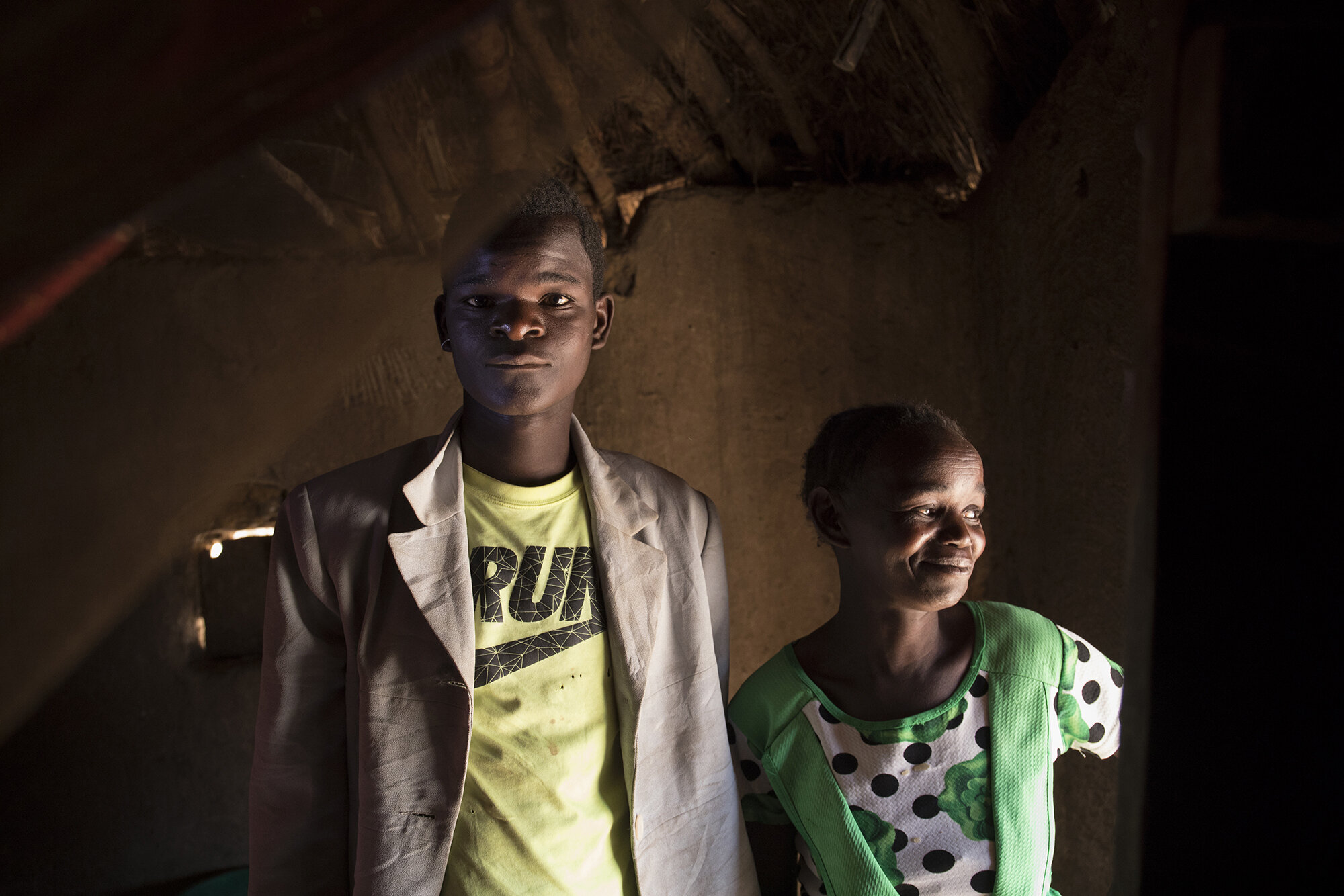
Ezekiel Mwale and his mother Ruthe, are possibly William Phiri’s great-nephew and niece. Ruthe’s father was possibly William Phiri’s older brother, Mwanza Phiri whom he last saw when he visited his rural home in 1961. William has never met his Ezekiel and Ruthe.
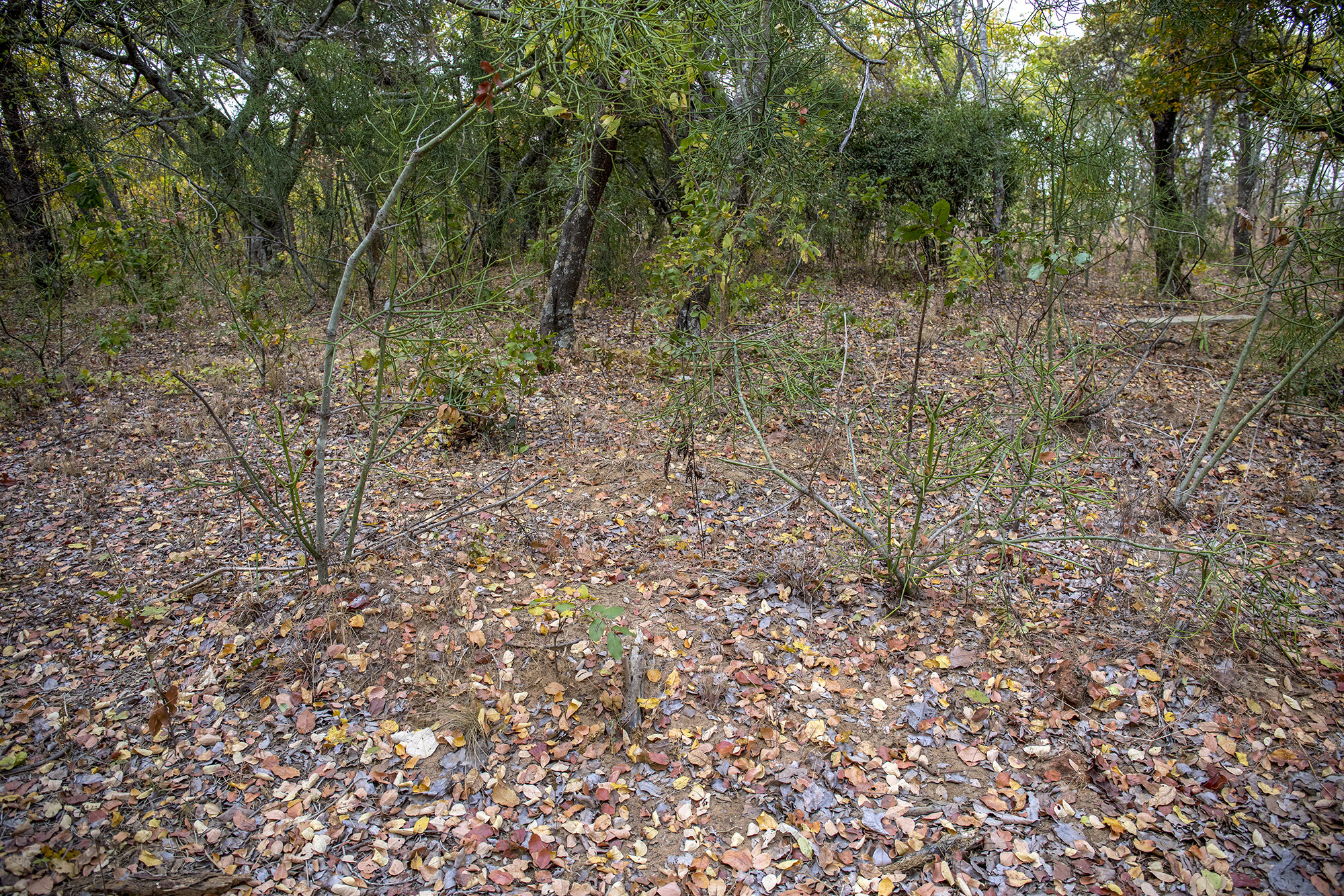
The gravesite of Anderson Phiri in Chinyama Village in Katete. Anderson was William’s younger brother whom, while growing up, spent most of his days with fishing and playing soccer.
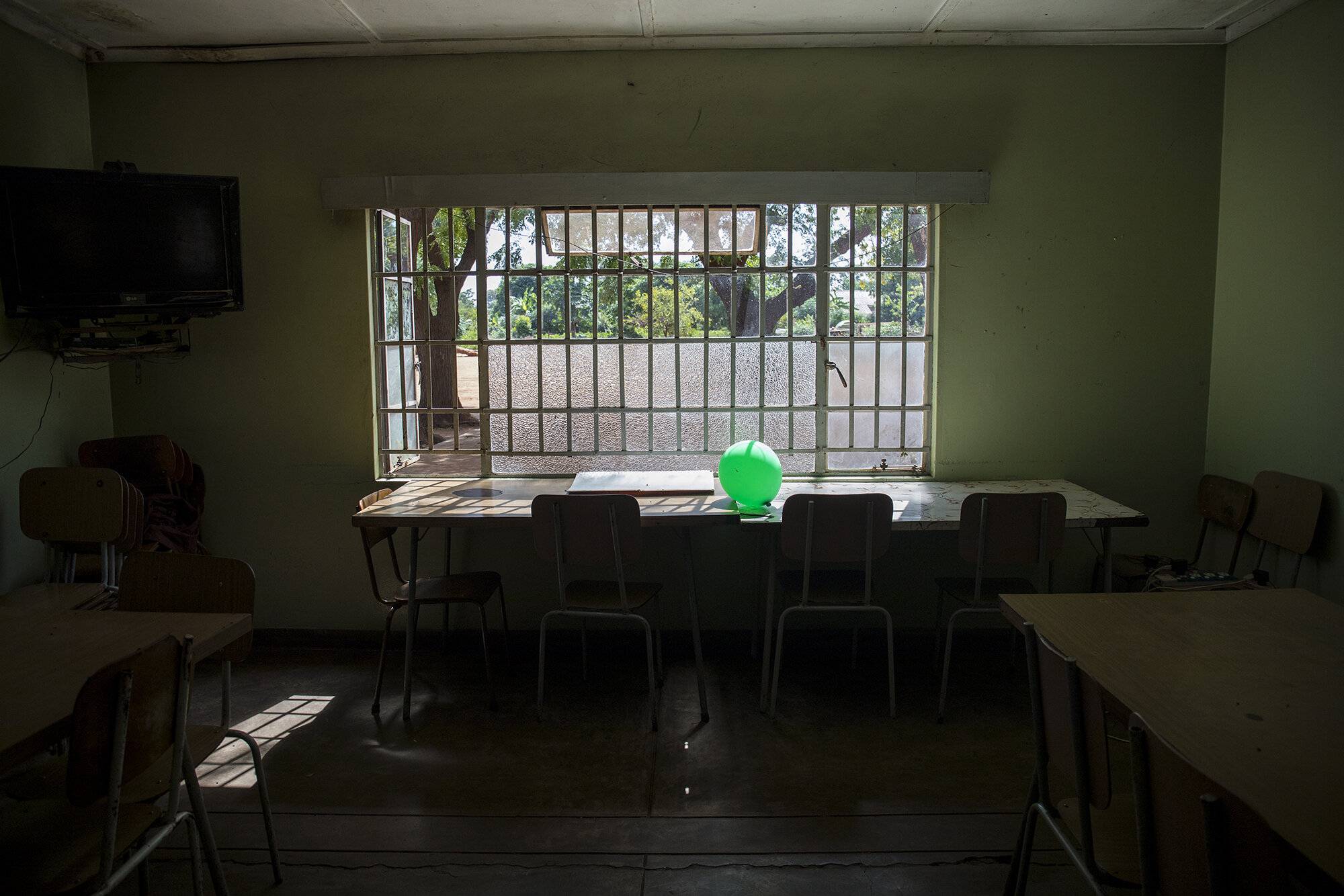
A balloon sits on a table inside the old age home cafeteria after Easter weekend.
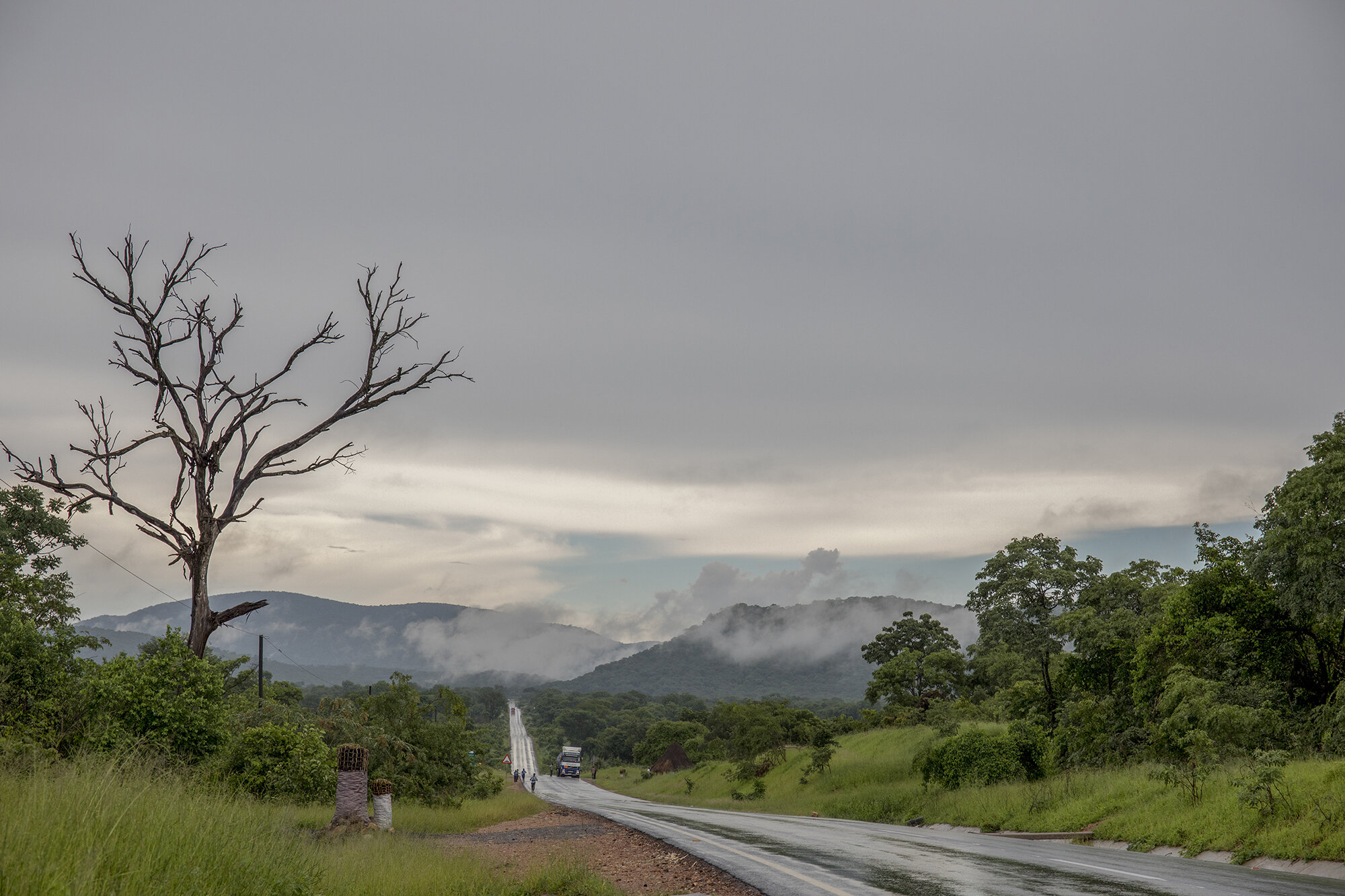
The road to Katete, Zambia, William Phiri’s rural home.

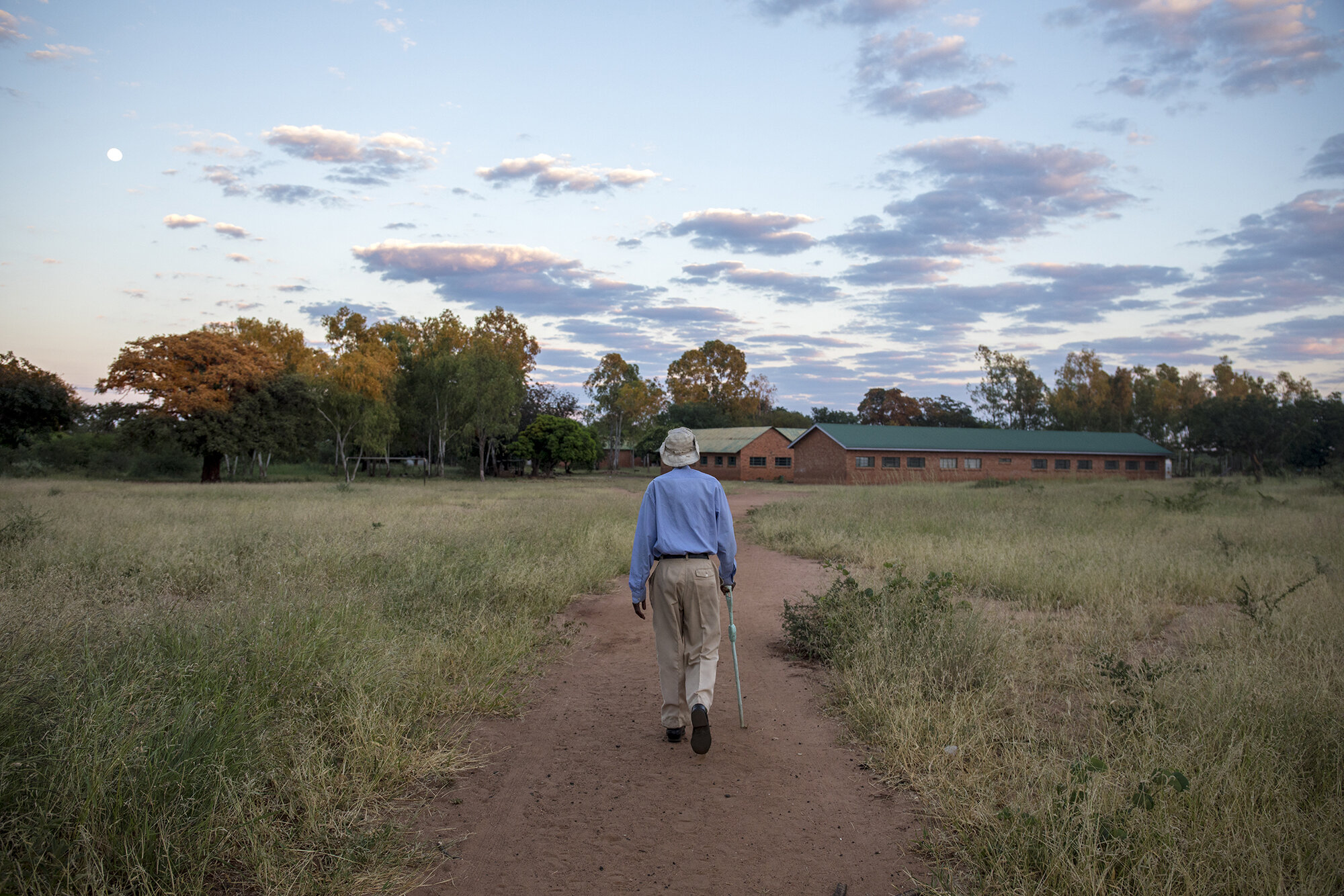
Every morning William Phiri walks to a nearby catholic church in his community to attend mass. He believes God protects us all in our daily lives.
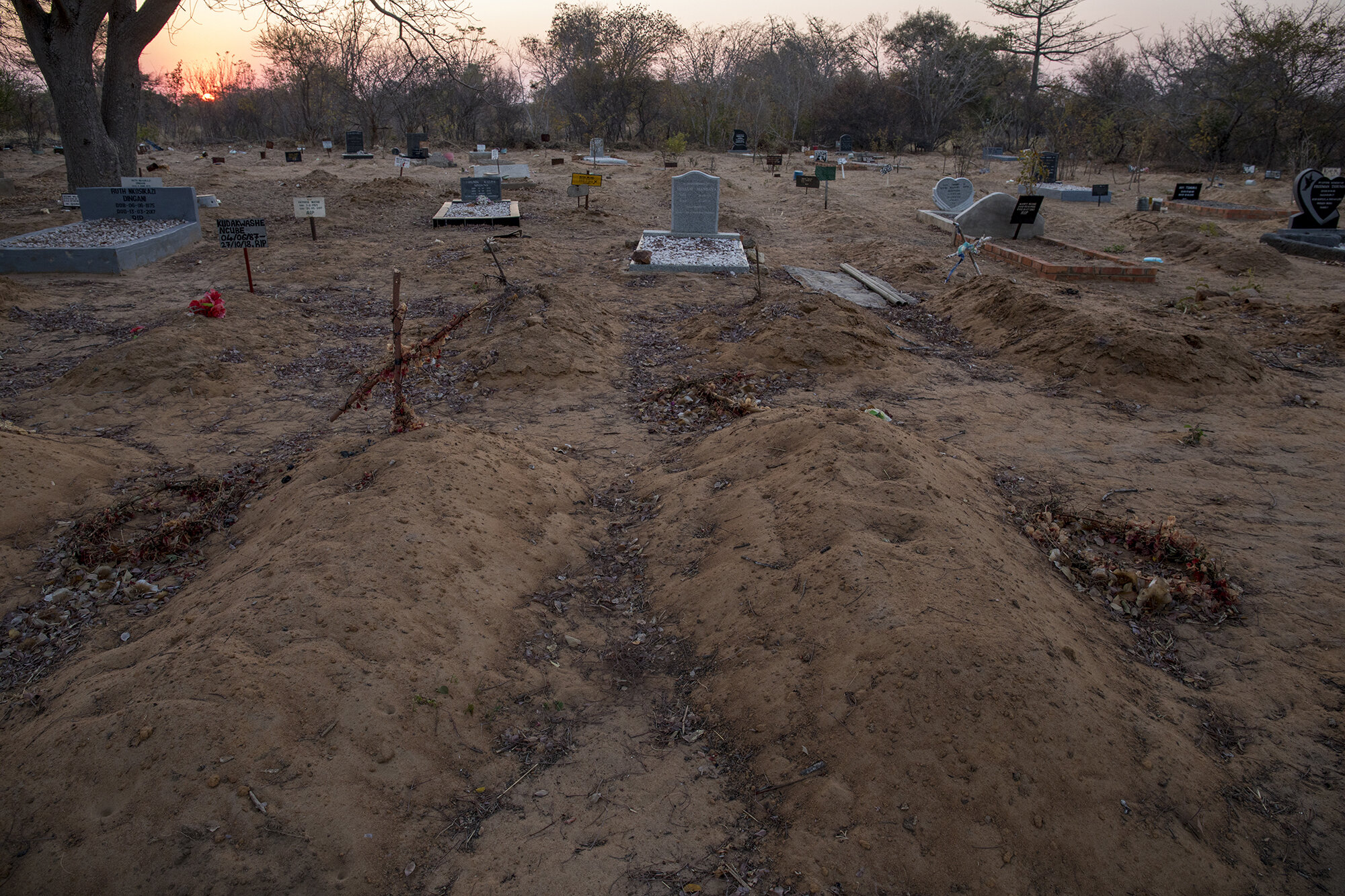
“This is our home. This is where we all eventually go.”

















“When I sit alone, when I am here, I remember all the things that my brother used to do even when my mother and father were still alive - he was a 100%, just a good person.”
Dear Anderson Phiri
If you are alive I am very happy. As for me I have gone blind, I can barely see. Am also asking if Lembelani Phiri is still alive, Esteli and Aless and the daughter to Esteli, Bester. I am asking if you can write to me and tell me if you and everyone are alive.
Yours William Phiri
William Phiri wears a shirt inscribed with landmarks in Zambia at the country’s independence in 1964. He got the shirt on his last trip to Zambia and has kept it over the years as a reminder of where he comes from. “I used to wear the shirt as an undershirt before Zimbabwe gained it’s independence in 1980. You could get arrested if you were seen wearing anything that was pro-independence.”
William Phiri (86), is a former migrant worker who came from then-Northern Rhodesia (now Zambia) in the late 1950s to work in then-Southern Rhodesia. He joined the National Railways of Rhodesia (now National Railways of Zimbabwe) and worked there from 1970 until he retired in 1999.
Every morning William Phiri walks to a nearby catholic church in his community in Dete, Zimbabwe to attend mass. He believes God protects us all in our daily lives.
The sunsets at Dete Old Age Home, in Dete where William Phiri spends the last of his days.
Wlliam Phiri opens his favourite Bible verse Matthew 17.
Kapoche stream near Chinyama village in Zambia. Growing up in the 30s and 40s, William Phiri remembers catching fish from the stream with his younger brother Anderson. Now the stream has dried up.
William Phiri shares a laugh with his companion at Dete Old Age Home, Dete.
Ezekiel Mwale and his mother Ruthe, are possibly William Phiri’s great-nephew and niece. Ruthe’s father was possibly William Phiri’s older brother, Mwanza Phiri whom he last saw when he visited his rural home in 1961. William has never met his Ezekiel and Ruthe.
The gravesite of Anderson Phiri in Chinyama Village in Katete. Anderson was William’s younger brother whom, while growing up, spent most of his days with fishing and playing soccer.
A balloon sits on a table inside the old age home cafeteria after Easter weekend.
The road to Katete, Zambia, William Phiri’s rural home.
Every morning William Phiri walks to a nearby catholic church in his community to attend mass. He believes God protects us all in our daily lives.
“This is our home. This is where we all eventually go.”